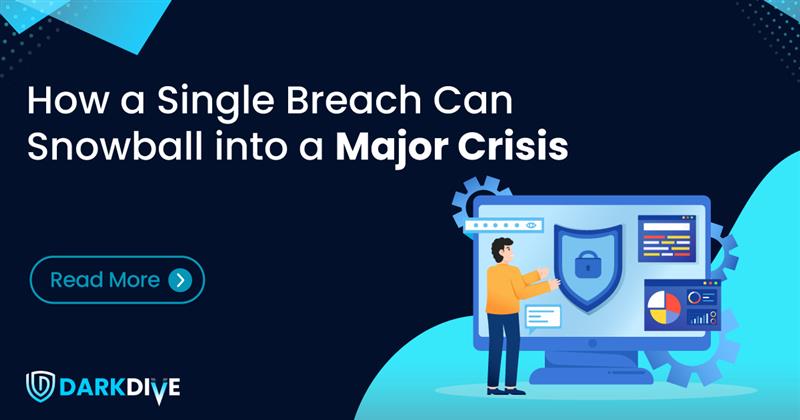
There aren’t always flashing alarms and clear damage when a hack happens. Most of the time, it starts slowly, with one login being stolen, one database being forgotten, or one cloud bucket being set up incorrectly. It looks small. Able to hold. Not even harmful.
Until it’s not.
In today’s highly linked world, even a small breach can set off a chain of events that have terrible results. For hackers to get in, all they need is a door that is broken. That door can swing wide open before you even know it if your team misses the early warning signs.
One Point of Entry, Many Effects
Say someone gets ahold of one employee’s email login. It’s just one account, but it can lead to password resets, internal system access, sensitive data exposure, and worse. That one set of credentials might give them enough access to escalate privileges, install malware, and move laterally through your network without raising a flag.
They’re patient. They study your systems. They collect information over days or weeks. And by the time their presence is felt, they’ve already got what they came for; or worse, they’re ready to make their move in a much bigger way. This is how ransomware attacks begin. This is how insider threats escalate. This is how reputational disasters unfold.
Why Small Breaches Aren’t Small at All
Attackers understand something many companies overlook: slow attacks are harder to detect and far more effective. They don’t crash your systems immediately. Instead, they map out your internal structure, identify weak points, and prepare for a bigger strike.
When companies dismiss a minor alert or overlook a leaked credential, they lose their chance to contain the threat early. That oversight becomes costly. What began as a single compromised login can eventually impact your entire infrastructure—including client data, intellectual property, and operational stability.
And the worst part? You may only find out after your customers report fraud, your systems go down, or a journalist uncovers your data for sale on the dark web.
The Real-World Cost of Ignoring the Snowball
Letting a small breach grow into a crisis doesn’t just strain your security team — it strains your business. The longer the threat goes undetected, the more complex and expensive the response becomes.
Here’s what you’re really risking:
- Soaring incident response and recovery costs
- Legal and compliance violations due to delayed reporting
- Customer churn and public trust erosion
- Investor uncertainty and media backlash
Every day you’re unaware of the breach is a day attackers gain more ground — and your team loses time, control, and credibility.
Where DarkDive Comes In
DarkDive isn’t just scanning for post-attack forensics. We focus on catching trouble when it’s still manageable and sometimes even before it starts.
Our platform monitors dark web marketplaces, breach forums, and underground chatrooms in real time. We look for mentions of your credentials, infrastructure, employee accounts, and vendor tools. If there’s chatter about your organization, or even a single login listed for sale, we alert you immediately. That early alert could mean the difference between resetting a password and shutting down your systems.
Stop the Breach Before It Becomes the Crisis
You don’t need a full-blown attack to justify stronger monitoring. You need a strategy that works when things still look “fine.” That’s what proactive cybersecurity is about: not waiting for problems to become newsworthy, but identifying signals that help you stay ahead.
DarkDive helps you recognize the first sign of trouble, connect the dots, and take action before things spiral out of control. Because in this threat landscape, even a small snowflake can turn into an avalanche.
